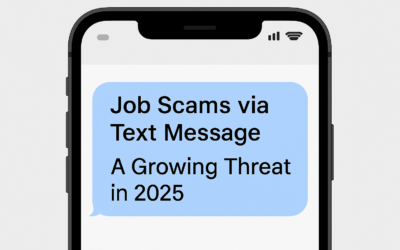COVID-19 fears are fertile ground for malicious actors. Here’s how to stay safe online.

As with any public crisis, the spread of the coronavirus has created a new crop of hackers — targeting people who are awaiting their stimulus check, who are working from home and who are just trying to stay healthy. Add in April Fools’ Day and you need to be on guard against all kind of scams and misinformation found online, in your email inbox and even in your text messages.
A recent release from the FBI’s Internet Crime Complain Center offers some solid advice on what to watch out for.
“Scammers are leveraging the COVID-19 pandemic to steal your money, your personal information, or both. Don’t let them,” the FBI said. “Protect yourself and do your research before clicking on links purporting to provide information on the virus; donating to a charity online or through social media; contributing to a crowdfunding campaign; purchasing products online; or giving up your personal information in order to receive money or other benefits.”
Unsolicited emails that prompt you to click on an attachment should always raise a red flag when you’re checking your inbox. But these classic email phishing scams still lure unsuspecting users into downloading malicious items and giving up their login information every day.
With the news that the government is going to issue payments of up to $1,200 in coronavirus relief to US taxpayers in the coming month, the FBI recently issued a warning to be on alert for attackers masquerading as the agency and asking for personal information supposedly in order to receive your check. “While talk of economic stimulus checks has been in the news cycle, government agencies are not sending unsolicited emails seeking your private information in order to send you money,” the warning said.
Among other steps to create a safer inbox, the US Cybersecurity and Infrastructure Security Agency recommends turning off your email client’s option to automatically download attachments. Not all email clients offer this and each client is different, but some do. Because social engineering attacks — scams designed to persuade you to hand over your sensitive information by targeting specific information about you — have become increasingly common in times of crisis, it’s also a good idea to read up on how to identify these security risks.
And remember, never reveal personal or financial information in an email, or respond to requests for it.





0 Comments